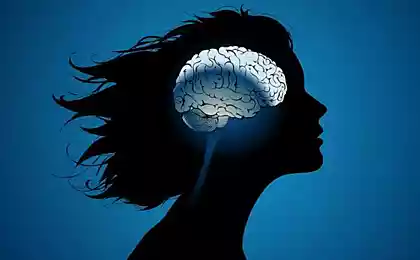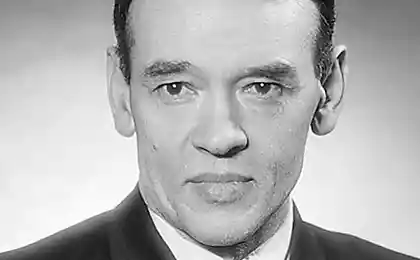608
A three-story brain — how emotions control us

© Felix Pfäffli
What is stress and can it be assessed? How emotions arise and how they affect the body? What is a three-story brain and "the theory of functional systems"? All this told the doctor of medical Sciences, Professor of the First Moscow medical University named after Sechenov and MGTU im. Bauman Paul Unruhen. The first researcher to stress as such was the American psychophysik Walter cannon, who found that emotions precede physical reactions, and not Vice versa. In 20 years, cannon developed the famous theory of homeostasis — the constancy of the internal environment of the body. According to this concept, the body itself take care about the constant maintenance of conditions, adapting to changes in the environment. The body always stand out stress hormones — the adrenaline, noradrenaline and cortisol. All three of the hormone affect us a certain effect: for example, when the release of cortisol, the body is able to exist in a stressful environment and cope with stressful situations. Adrenaline activates the body, dilates the pupil, bronchi and heart. Thanks to the stress hormones, human capabilities are magnified — everyone knows the story of American Joe Rollino, who managed at one time to carry from the field his four comrades. However, the hormones that are released when the stress cause to the body great damage: decreases the sensitivity of the tubules of the kidneys, reduced immunity, increased risk of stomach ulcers....
Stage of stress
Student cannon Hans Selye brought up the 3 stages of stress. At the first stage — "alarm stage" there is a mobilization of protective forces of the body, improves efficiency, and due to the increased discharge of nitrogen and potassium increased liver or spleen. In the second stage is "resistance" is an increase in resistance to various influences, however, decreases activity of other systems. The third and final stage — the stage of "exhaustion" on the contrary, is characterized by reduced resistance of the organism to the stressor and can lead to death. It is important to note that the body itself goes from the second to the third stage, and we are only after some time can understand this process.
How to evaluate your stress?
It is important to understand at what stage is your stress. This can help the newest developments: for example, the program Stress check, which you can install on Android. The program can evaluate the changes of cardiac intervals, the screen displays the pulse wave. Under stress the heart rate is less variable.
Protection mechanisms
The autonomic nervous system is divided into two divisions: sympathetic and parasympathetic. The sympathetic system or the "fight to fight" that is activated in stressful situations. During this period, pupils dilate, bronchial tubes, kidneys, trachea, decreased urine output, and blood vessels constrict. But the opposite of the parasympathetic system or "relaxed" has a serum effect on our body: in the period of revitalization is copious lacrimal and salivary glands, the stomach produces more juice. It is very important to learn how to operate the parasympathetic system for recovery.
Emotions
In fact, emotions can pose a direct threat to our lives. This fact demonstrates the bold experiment of Ibn Sina in two different cells opposite each other he had planted the wolf and the lamb. Within a few days from the constant stress associated with a sense of danger, the lamb was very sick and died, although his cage had food, and the very animal was young and healthy.
In accordance with the teachings of the scientific school of Anokhin and Sudakov, stress occurs when a person for a long time can not meet vital needs. Thus, negative emotions accumulate. How does it happen? There is a certain theory, which was developed by these researchers is the theory of "functional systems". According to the doctrine, a behavioral act depends on the satisfaction of needs. Needs shape motivation, followed by a step of "decision-making", followed by "program actions" and then "result". But the finish line in this process is the so-called "phase parameter" result, certainly when we compare the result with our expectations. The conclusion to our emotions does not affect the result of any case or event, namely, the difference of expectations and reality. If the result and the expectation are the same, then we can experience positive emotions, but when the opposite happens, then we accumulated negativity, which can lead to stress. A typical example is when a student gets on the exam only four and very beat up over it, and some even fall into depression. The most important rule in this case: emotional tune is not the highest motivation and the best result.
Experiments
Russian physiologist Yevgeny Yumatov conducted a series of experiments that show that emotion affects personal attitude to something. Yumatov was experimenting with rat — rodent is placed in the space where the floor had a huge number of wires with a small electric voltage. Rat very long jumped, trying not to step on the wire, and then, when he saw the house (it was installed in a corner), I reached him and for a long time was there, calmly. Before the hut was killed a few rats, probably due to some unfavorable situation, with no wires around the house was not — dead rats were in complete safety.
Mechanisms
To control your emotions, it is important to understand how it works in our brain. Neuroscientist Paul Maclean argued that the human brain consists of three parts, which are impaled on one another, like Russian nesting dolls. The Central part is an ancient brain or reptilian brain, which is responsible for the performance of simple functions — breathing, sleeping, blood circulation. The second part of the ancient brain or limbic system that is involved in the regulation of functions of internal organs of smell, memory, sleep, wakefulness. The limbic system the person can not control, but the relationship between consciousness and emotion is always there. But the neocortex, or cerebral cortex responsible for higher nervous activity. This is the only part of the brain processes in which we can track. It is in the neocortex, formed our "I". Each of us is very important to understand what exactly he is displaying positive emotions. Because the emotional state generalities on all systems. Positive emotions are always short-term, but the negative have chronic properties. According to statistics, positive emotions depends on three factors: the presence of loved ones, of satisfied vital needs, and of course, success, but only in those areas that for us are really important.
The person needs to make every effort in order to monitor their body to try to control those processes, which you can control. At the right moment of observation will help to prevent the accumulation of negative emotions and development stages of stress. It is very important to assess their actions, decisions. At the end of the day just to remember and be sure to record certain situations and your reaction to them — it will be easier to change behavioral patterns. Also close to attention to your breathing, do breathing exercises and how to not sound trite, sleep for 8 - 9 hours.
Source: theoryandpractice.ru
A glass of water at night helps avoid stroke and heart attack
Open a shocking secret archives of Lenin























